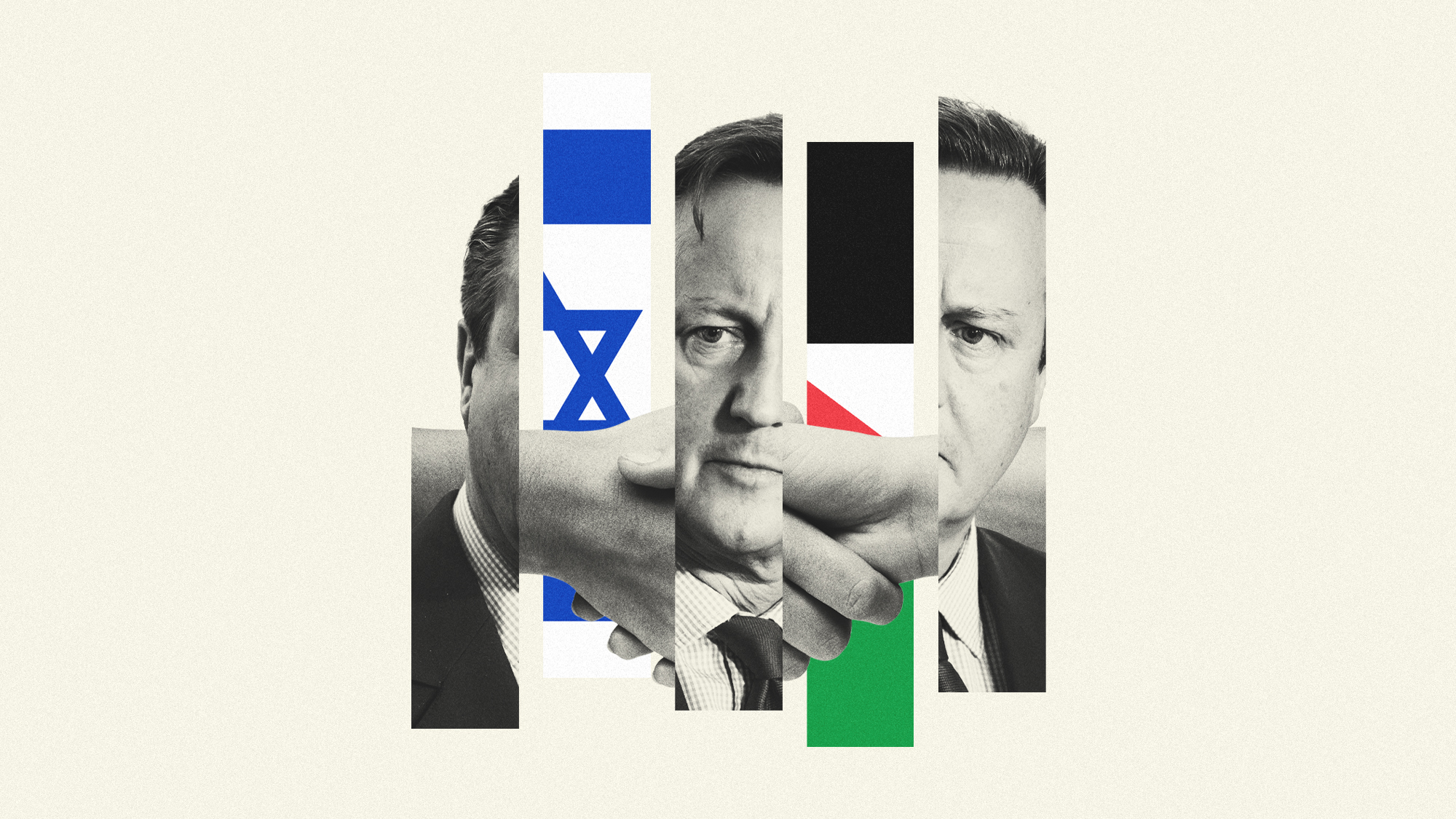What is Britain's policy on a two-state solution?
David Cameron says the government may consider switching position to recognise Palestine as a state

A free daily email with the biggest news stories of the day – and the best features from TheWeek.com
You are now subscribed
Your newsletter sign-up was successful
David Cameron has escalated the UK government's commitment to a Palestinian state by saying the UK would push for it to be recognised at the United Nations.
Speaking at a reception for Arab ambassadors, the foreign secretary said it could help bring about "irreversible progress to a two-state solution”, as he continued to call for an immediate pause in fighting in Gaza. The British government currently does not recognise Palestine as an established state despite previous non-binding votes in Parliament in favour of recognition. The government does, however, support a two-state solution along 1967 lines, including in the face of the devastating ongoing conflict.
But such a fundamental change in position as suggested by Cameron has already inevitably sparked some backlash, including from within his party. Cameron has argued that recognition could present a “political horizon” for the Palestinian people, as he begins a "fresh tour of the Middle East" to try and "push a five-point plan to quell the latest war", said Politico.
The Week
Escape your echo chamber. Get the facts behind the news, plus analysis from multiple perspectives.

Sign up for The Week's Free Newsletters
From our morning news briefing to a weekly Good News Newsletter, get the best of The Week delivered directly to your inbox.
From our morning news briefing to a weekly Good News Newsletter, get the best of The Week delivered directly to your inbox.
What did the commentators say?
While the head of the Palestinian Mission to the UK "welcomed" Cameron's new rhetoric on Palestine's statehood, many "Tory MPs have been far less impressed", said Michael Curzon at the European Conservative.
Backbench MP Theresa Villiers said seeking Palestinian statehood would "reward Hamas’s atrocities", while Greg Smith MP said it could not be "reasonably expected" that Israel would seek a ceasefire when Hamas does not and "actively seeks its destruction".
Cameron's comments and the backlash have "quickly pushed the government to 'downplay'" them, added Curzon, with Downing Street saying the foreign secretary's remarks "did not mark a shift in the government’s broader position". The official word from the Prime Minister's spokesperson reiterated that the government would "recognise a Palestinian state at a time it best serves the cause of peace" and that it was "committed to the two-state solution".
It is clear Cameron "didn’t get Downing Street to approve his speech", and that put the government in a "difficult situation", wrote Oliver Duff at the i news site. It "won’t be the last time" there is "policy tension" between Cameron and Rishi Sunak, he added, with Cameron wanting the government to "develop a more muscular Middle East policy". However, in this instance, there has clearly been "overreach" by the former prime minister in No.10's eyes.
A free daily email with the biggest news stories of the day – and the best features from TheWeek.com
But while factions of his own party have hit back at Cameron, some have welcomed the possible switch in position. Tory MPs Bob Seely and Alicia Kearns both approved the notion, the former saying it was a "constructive" idea, while Shadow Foreign Secretary David Lammy said it was a step towards establishing the "inalienable right of the Palestinian people".
Cameron has "said what needed to be said", agreed Melanie McDonagh in the The Standard. Britain should "back a two-state solution", she added, even "before an agreement is arrived at". His comments show he recognises Britain's "historic responsibilities in the region", but moreover demonstrate that he believes a "two-state solution is possible".
What next?
The UK's position on Palestine is in the spotlight as "international pressure mounts" on Israel to stop its offensive in Gaza, said the Financial Times. But while "initiatives being discussed by Western and Arab states" include the "shared goal of the establishment of a Palestinian state alongside Israel", there remain "significant hurdles" to launching a new peace process.
The biggest of those is Israeli Prime Minister Benjamin Netanyahu's refusal to countenance the idea of a Palestinian state as he pursues "total victory" over Hamas. Cameron has urged Netanyahu to "re-consider talks aimed at a two-state solution", but he "rebuffed the push from Western allies, including the US", said The Independent.
Cameron's current tour of the Middle East, as well as pushing for a ceasefire and a two-state solution, is also aimed at stopping the conflict from "spilling over borders” in the region. He began his trip in Oman to "discuss tensions across the region", said The Independent, with recent attacks stoking "fresh fears of a Western confrontation" with Iran.
Richard Windsor is a freelance writer for The Week Digital. He began his journalism career writing about politics and sport while studying at the University of Southampton. He then worked across various football publications before specialising in cycling for almost nine years, covering major races including the Tour de France and interviewing some of the sport’s top riders. He led Cycling Weekly’s digital platforms as editor for seven of those years, helping to transform the publication into the UK’s largest cycling website. He now works as a freelance writer, editor and consultant.